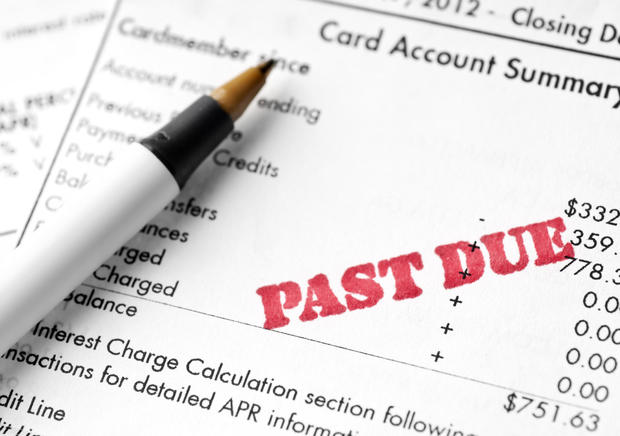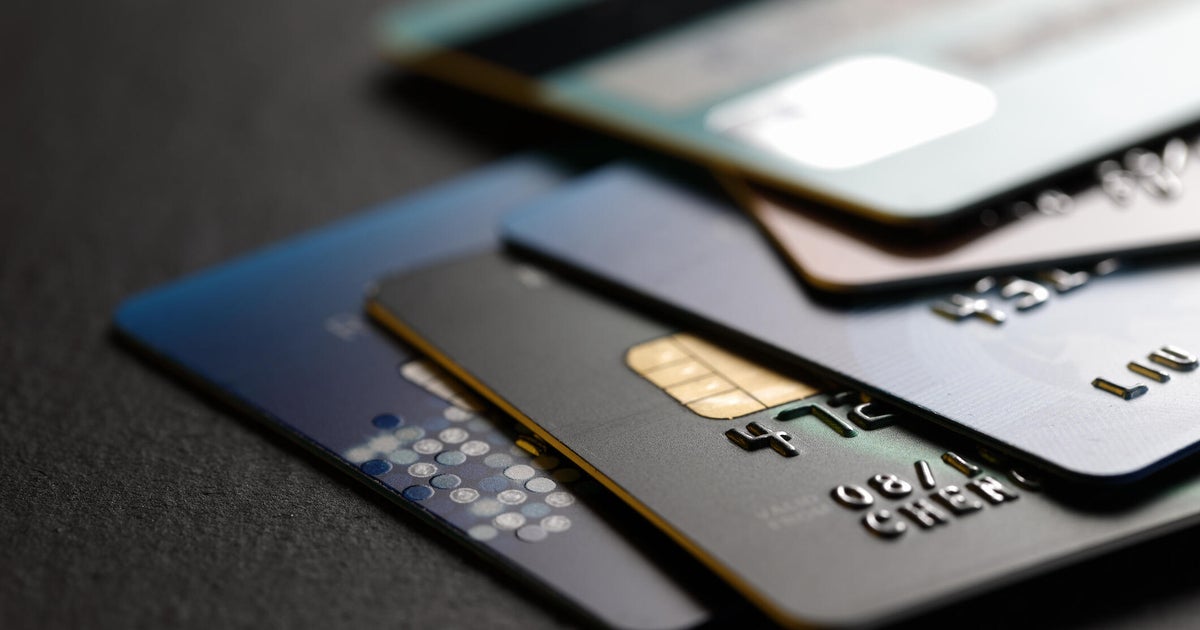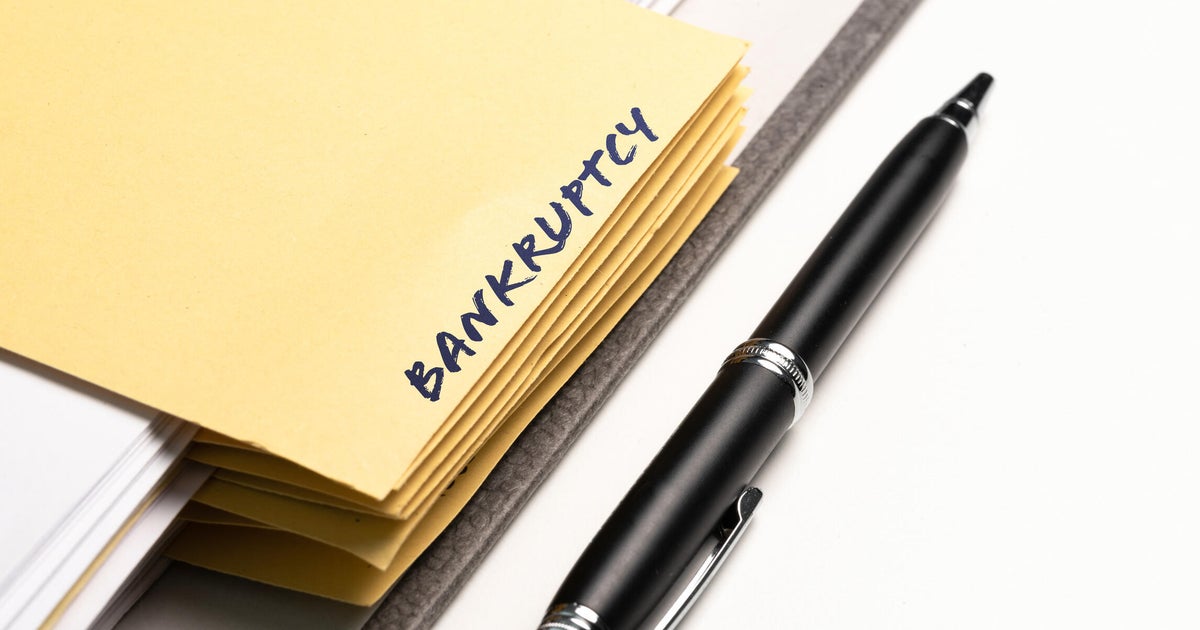How to get help with your credit card debt, according to experts
With the costs rising for nearly everything due to high and persistent inflation, it's no surprise that many Americans are turning to credit cards to help pay for essentials. But while this approach can help fill in the gaps in your budget, it comes at a hefty price.
According to the Federal Reserve Bank of New York, Americans currently collectively owe $1.12 trillion in credit card debt — more than 13% compared to one year ago. And, the average American now owes almost $8,000 in credit card debt despite annual percentage rates (APRs) on credit cards having almost doubled in the last decade. The average credit card rate is now close to 23%.
These factors can make credit card debt hard to tackle. And, some cardholders are facing even higher credit card balances than the average, so it's important to know how to get help with this type of debt if and when you need it.
Find out how the right debt relief program can help you today.
How to get help with your credit card debt, according to experts
Here's how experts say you can manage your credit card debt — and where you can get help if you need it.
Take a realistic look at all of your debt
One of the hardest parts of facing your credit card journey is looking at the mountain of credit card debt you've accrued. But, it's also one of the first steps in managing it.
"Assess the full scope of the issue using each credit card's most recent monthly statements," says Markia Brown, accredited financial counselor and founder of The Money Plug. "These statements will give you the current balance owed and the assessed interest rate for each account. This information can help you identify which debt paydown strategy is best for you."
While your statements are an important place to look, they aren't the only place. Martin Lynch, president of the Financial Counseling Association of America (FCAA), says you should also take a look at your budget to make sure it's up-to-date.
"Make sure all of your income and expenses are accurately reflected, then prioritize those expenses to identify areas where temporary reductions can be made," Lynch says. "The key to the process is a flexible mindset. Recognizing that you can control your expenses by making temporary, beneficial changes can be very empowering."
Ready to tackle your credit card debt? Compare your options online here.
Craft a repayment plan for a DIY approach
If you want to take the do-it-yourself (DIY) approach, there are a few different ways to tackle credit card repayments on your own, including the debt snowball and debt avalanche methods.
For both methods, you'll list all outstanding credit card debt, including how much you owe, the minimum monthly payment, the interest rate and the due date. You can do this on a spreadsheet or write it out by hand — whatever works best for you.
Debt snowball
The debt snowball method is when you make minimum payments on all of your outstanding debt and then put all of your extra cash toward the credit card with the smallest balance. You'll do this every month until the smallest debt is paid off in full. Then you'll move onto the next-smallest debt and continue until you've paid off all your credit cards.
Debt avalanche
Instead of focusing on the smallest debt first, the debt avalanche method prioritizes the debt with the highest interest rate or the largest balance. You'll make minimum payments on all your outstanding debt and put any extra cash towards the credit card with the highest balance or interest rate. Do this until your card is paid in full and then move onto the card with the next-highest interest rate or balance and continue until all your cards are paid in full.
Try to settle old debts and delinquent accounts
You may also want to pull your credit report for free at AnnualCreditReport.org and see if there are any delinquent accounts listed on your report. If there are, be sure to check and make sure those accounts are actually yours. If they aren't, you can report inaccurate and fraudulent accounts. But if they are yours, you may want to take some steps to negotiate those old debts.
"Some debt collectors will allow you to set up a payment arrangement, and some will even settle for less than what is owed," Brown says. "Whichever option you choose, make sure to get a written agreement signed by an agent of the company for your records."
If the delinquent debt is old, there's a chance your debt has already moved into collections. If that's the case, you can reach out to them to see what your options are. You can find that contact information on your credit report.
"For most consumers whose debt has recently moved to collections, don't settle the debt, and don't promise more than you can actually afford to pay," Lynch says.
Get professional help when you need it
For some people, tackling credit card debt requires a little bit of extra help from professionals. For example, some non-profits, like the FCAA, will offer free credit counseling to those who need it.
"If you're maxing out your accounts and your high interest rates are breaking your budget, let our counselor lay out your options and give you the space to ask questions until you're satisfied," Lynch says. "We'll even create an action plan with you that's free."
Some borrowers might need tailored assistance through a debt relief company, like a debt management program, instead. These plans allow debt relief agencies to negotiate on your behalf to lower your interest rates or outstanding payments.
There are other options too, like debt settlement programs, in which the debt relief company negotiates lower payment amounts on your credit card balances to settle what you owe. The rest of the debt is then "forgiven" by the creditor or the debt collector it was sold to.
But while these programs can be helpful in many cases, you'll have to pay a fee for this service. And that fee can vary widely based on the company you work with.
You don't have to work with a debt relief agency to get this type of relief, though. In some cases, you might be able to do it on your own. But if you do go the route of finding outside assistance, make sure you screen companies beforehand and keep an eye out for any red flags that could signal a scam.




